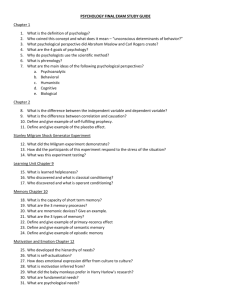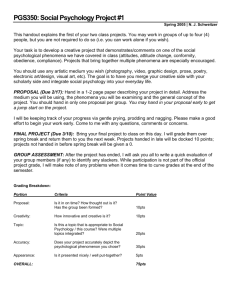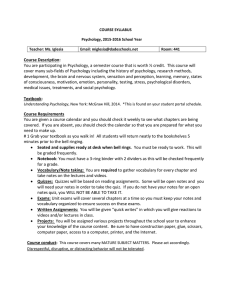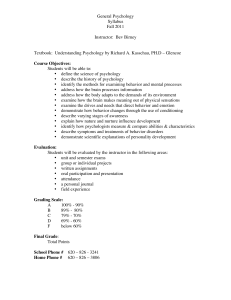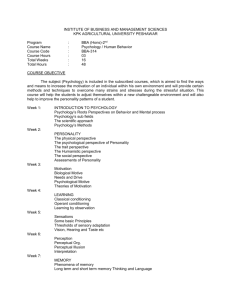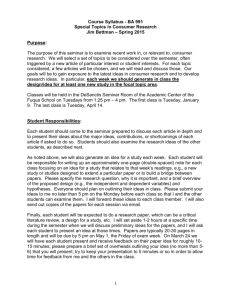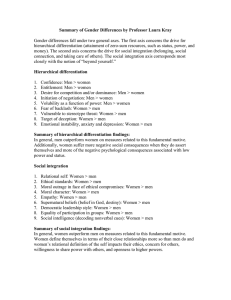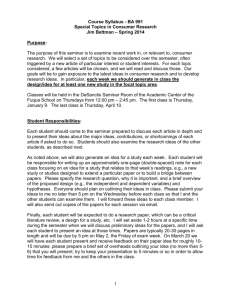Course Overview
advertisement
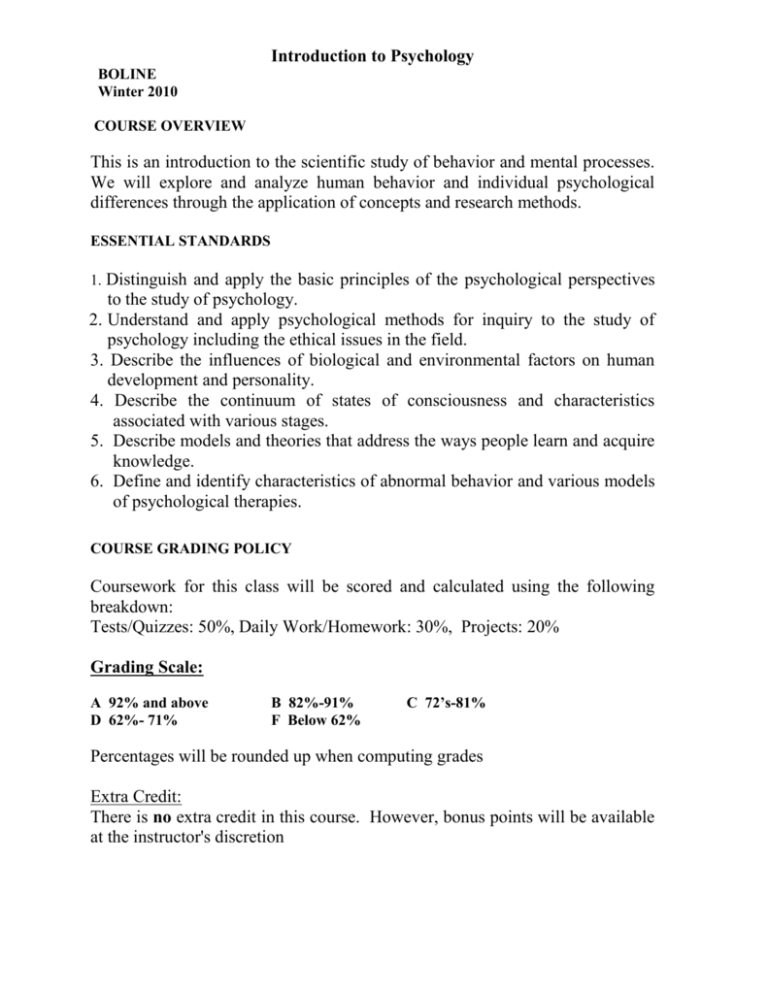
Introduction to Psychology BOLINE Winter 2010 COURSE OVERVIEW This is an introduction to the scientific study of behavior and mental processes. We will explore and analyze human behavior and individual psychological differences through the application of concepts and research methods. ESSENTIAL STANDARDS 1. Distinguish and apply the basic principles of the psychological perspectives to the study of psychology. 2. Understand and apply psychological methods for inquiry to the study of psychology including the ethical issues in the field. 3. Describe the influences of biological and environmental factors on human development and personality. 4. Describe the continuum of states of consciousness and characteristics associated with various stages. 5. Describe models and theories that address the ways people learn and acquire knowledge. 6. Define and identify characteristics of abnormal behavior and various models of psychological therapies. COURSE GRADING POLICY Coursework for this class will be scored and calculated using the following breakdown: Tests/Quizzes: 50%, Daily Work/Homework: 30%, Projects: 20% Grading Scale: A 92% and above D 62%- 71% B 82%-91% F Below 62% C 72’s-81% Percentages will be rounded up when computing grades Extra Credit: There is no extra credit in this course. However, bonus points will be available at the instructor's discretion COURSE OUTLINE: Students are expected to read textbook and take notes pertaining to each unit. Unit One- Approaches to Psychology (Experiment Project) Chapter 1 (pages 2-25) The Field of Psychology Chapter 2 (pages 26-51) Methods of Psychology Unit Two- Brain, Body, and Awareness Brain Introduction (handout materials) Chapter 5 (pages 122-157) Motivation and Emotion Chapter 6 (pages 158-187) Consciousness Unit Three- Learning and Memory Chapter 7 (pages 190-221) Principles of Learning Chapter 8 (pages 222-253) Information Process and Memory Unit Four- Intelligence and Personality Chapter 9 (pages 254-283) Intelligence and Creativity Chapter 14 (pages 404-433) Theories of Personality Unit Five - Psychological Disorders (Research Project) Chapter 17 (pages 502-537) Mental Disorders BOLINE’S CLASSROOM POLICIES Assessment: Mastery of course content will be both formative (assessment for learning) and summative (assessment of learning). Daily work: Work is to be turned in at the beginning of the hour on the date it is due. Absences and homework will be handled according to MGSH school policies. Students must do projects as mandatory assignments for course. Late work (daily work) results in a 50% reduction in points. Late work may be turned in until summative assessment is taken. Participation: Students are expected get to class on time (in the classroom when the bell rings), ontask with classroom activities, as well as active participants in the classroom. Students may be called upon to explain concepts discussed in the readings. Attentive classroom behavior is expected at all times. Failure to follow these policies may result in disciplinary action. Students will be expected to take notes on classroom lectures

